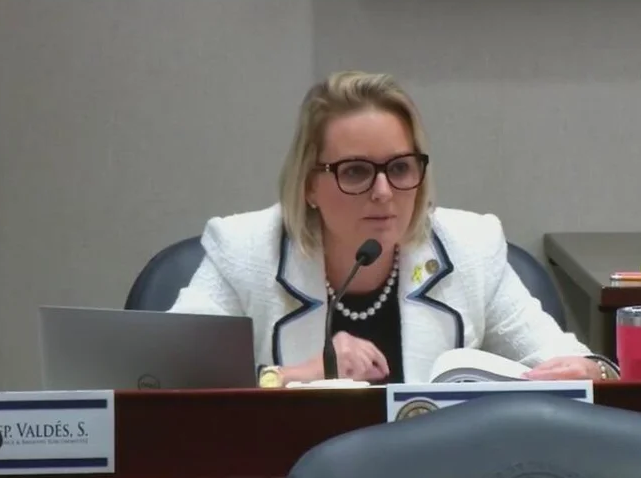If you work in or around property insurance in Florida, you have undoubtedly been exposed to the recent debate regarding Assignment of Benefits (“AOB”). An AOB is a legal form that allows an insurance provider to bill your insurance carrier directly. AOBs allow home-repair contractors to bill insurance carriers requiring nothing out-of-pocket from the homeowners after their home has been damaged. The following scenario illustrates how AOBs are supposed to work: A pipe breaks in your home and floods your living room. You call someone to extract the water the dry your home. With an AOB, that company will provide services to you without upfront payment because they have a legal means to recover their fee from the insurance company directly.
The insurance industry has been trying to eliminate AOBs for years based on the premise they are rife with abuse and fraud. In its brief to the First District Court of Appeal in Security First Insurance Company vs. State of Florida, Office of Insurance Regulation, Security First makes the case that the fraud and abuse surrounding AOBs lead to higher premiums for insurance consumers:
The typical scenario surrounding the use of an “assignment of benefits” involved vendors and contractors, mostly water remediation companies, who were called by an insured immediately after a loss to perform emergency remediation services, such as water extraction. The vendor came to the insured’s home and, before performing any work, required the insured sign an “assignment of benefits”—when the insured would be most vulnerable to fraud and pricegouging. Vendors advised the insured, “We’ll take care of everything for you.” The vendor submitted its bill to the insurer that was, on average, nearly 30% higher than comparative estimates from vendors without an assignment of benefits. Some vendors added to the invoice an additional 20% for “overhead and profit”, even though a general contractor would not be required or hired to oversee the work. Vendors used these inflated invoices to extract higher settlements from insurers. This, in turn, significantly increased litigation over the vendors’ invoices.
Meanwhile, insureds, who may have suffered other property damages from the loss, did not realize that they irrevocably assigned to the vendor/assignee “all rights, damages, indemnity and/or any interest in any monies payable by my homeowner’s insurance company. . . [and any rights] . . . to pursue any claims, demands, suits and any legal action” against the insurer.
Security First, and other insurers were, and are, being forced to adjust losses and litigate with new entities, with whom the insurers did not contract. These new “assignees” have a completely different profit-driven motivation than the insured’s motive to promptly repair and restore damaged property. Moreover, these new assignees “step in the shoes” of the insured, but have no obligation to comply with the contractual terms agreed to by the original parties—essentially creating a whole new playing field for the insurer—and materially affecting the risk the insurer assumed when it issued the policy.
Robin Westcott, formerly the Florida Insurance Consumer Advocate, testified that abuses surrounding “assignment of benefits” has become an increasing trend (and recurring problem) for insurance consumers. Ms. Westcott acknowledged an abusive and exploitive “network”, including attorneys, who conducted seminars for vendors and contractors and advocate how to obtain assignments of benefits to increase profit margins by 30 percent. Many insureds were not even aware that by signing an “assignment of benefits” to a third party, they would lose total control over their insurance claim, including the ability to promptly resolve their claim directly with their insurance company. Some vendors even threatened to lien the insured’s home if they refused to sign an assignment of benefits.
The undisputed testimony and evidence clearly showed the impact of this “cottage industry” of vendors, contractors and attorneys, using assignments of benefits and the threat of litigation, in order to extract higher payments from insurers. All of this results in an increased risk to Security First (which was not part of the original contract with an insured), an increase in claims, administrative costs and litigation expenses, which in turn, results in increased insurance premiums for the consumer. (citations omitted).
These are essentially the same points raised in Rep. Santiago’s Editorial Home repair insurance claim fraud hammering Florida..
Those on the other side point out that, without AOBs, consumers would be unable to complete repairs and would be at the mercy of insurance adjusters. In his editorial Insurance-assignment forms simplify, attorney Paul T. Zeniewicz makes the case for AOBs:
Think about the last time you went to the emergency room. You filled out paperwork for each health-care provider (physician, anesthesiologist, etc.), and your insurance company dealt directly with those providers. This is because you signed an "assignment of benefits," or "AOB," form. An AOB is a legal form that allows an insurance provider to bill your insurance carrier directly.
AOBs are backed by more than 100 years of Florida insurance law. AOBs allow home-repair contractors to bill insurance carriers without requiring anything out-of-pocket from the homeowners after their home has been damaged.
Imagine your kitchen is flooded from a broken pipe. Every second the damage to your home grows worse. Your contractor tells you, "The bill to remove the water from your home is $5,000, and I need payment immediately." Your insurance company won’t issue payment for 60 days; meanwhile, water and mold destroy your home. This is state Rep. David Santiago’s world of no assignments.
Contrary to Santiago’s views in his My Word column [Home repair insurance claim fraud hammering Florida], a homeowner does not "sign away control" of his claim when he fills out an AOB. The only thing an assignment does is to allow your contractor to bill your insurance company directly.
Insurance companies do not like AOBs because vulnerable homeowners are much easier to push around than a licensed contractor. The idea that contractors use AOBs to "inflate" their bills is nonsense. Although the overwhelming majority of Florida contractors are outstanding, reputable businesses, a minority inflate prices. An AOB only determines who gets stuck with the inflated balance.
With AOBs, the insurance company has to fight the dishonest contractor. Without AOBs, homeowners are stuck with the inflated bill. AOBs protect homeowners from fraudulent contractors because the insurance company, not homeowner, has to fight the fraud.
It is clear Santiago’s agenda is to protect insurance companies. This is reflected by more than $35,000 in campaign contributions to him from the insurance industry in 2014, by my review of his campaign-finance reports. AOBs are essential tools for homeowners.
So where does that leave us? As with most issues, somewhere in the middle. Yes, there is a potential for abuse regarding AOBs. I have seen some egregious contracts that give away control of the entire claims process. In fact, contracts such as these are arguably improper under existing law given that only certain people are allowed to “negotiate a claim.” Such contracts enable home-repair contractors to get around Florida Statutes 626.854 and act as Public Adjusters without fulfilling the necessary prerequisites. These types of AOBs should be addressed by the Legislature and banned. Nevertheless, these types of contracts are the minority. Most AOBs simply allow the home repair entity to bill the insurance carrier directly in order to get the work done upfront. Mostly, AOBs are an invaluable tool that allow the homeowner to get work done on their home without upfront payment. Without AOBs, how will someone replace a roof immediately after a storm? Or remove water from their home quickly before mold starts to grow?
Regarding the insurance claims of fraud, price-gouging, increased litigation, etc…, these assertions are getting stale. The industry cries “wolf” with respect to anything that results in them having to pay out more. This post is long enough without me getting into that subject, but stay tuned. In the meantime, for your reading pleasure, The Industry Who Cried Wolf.



